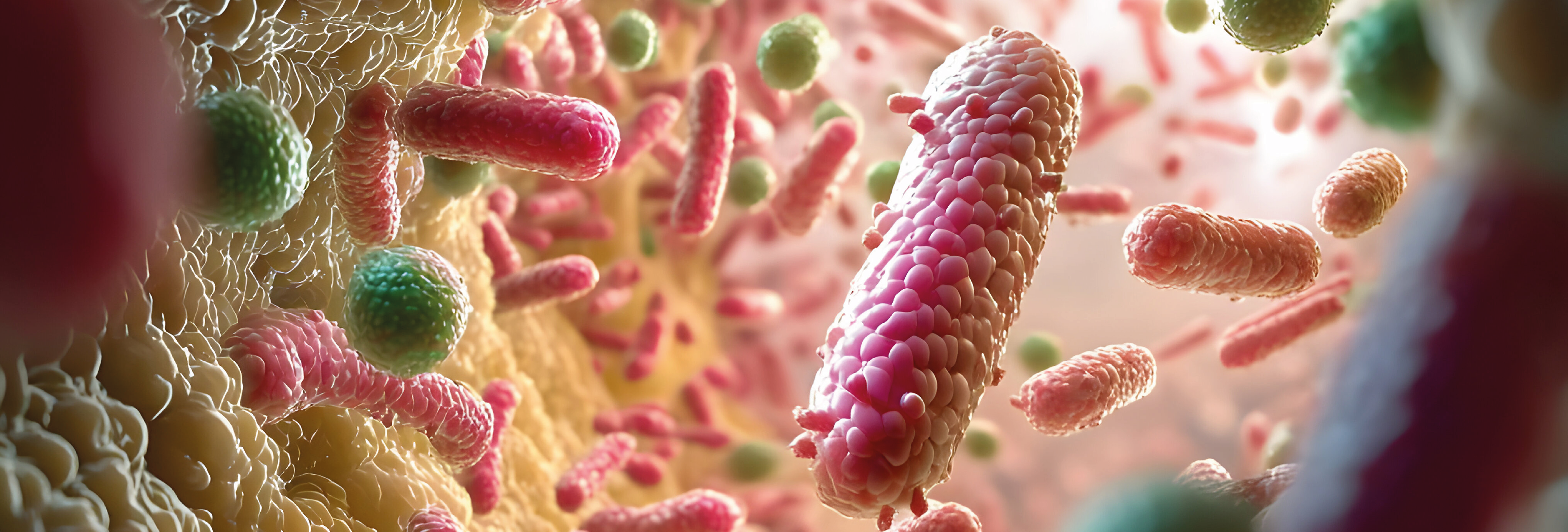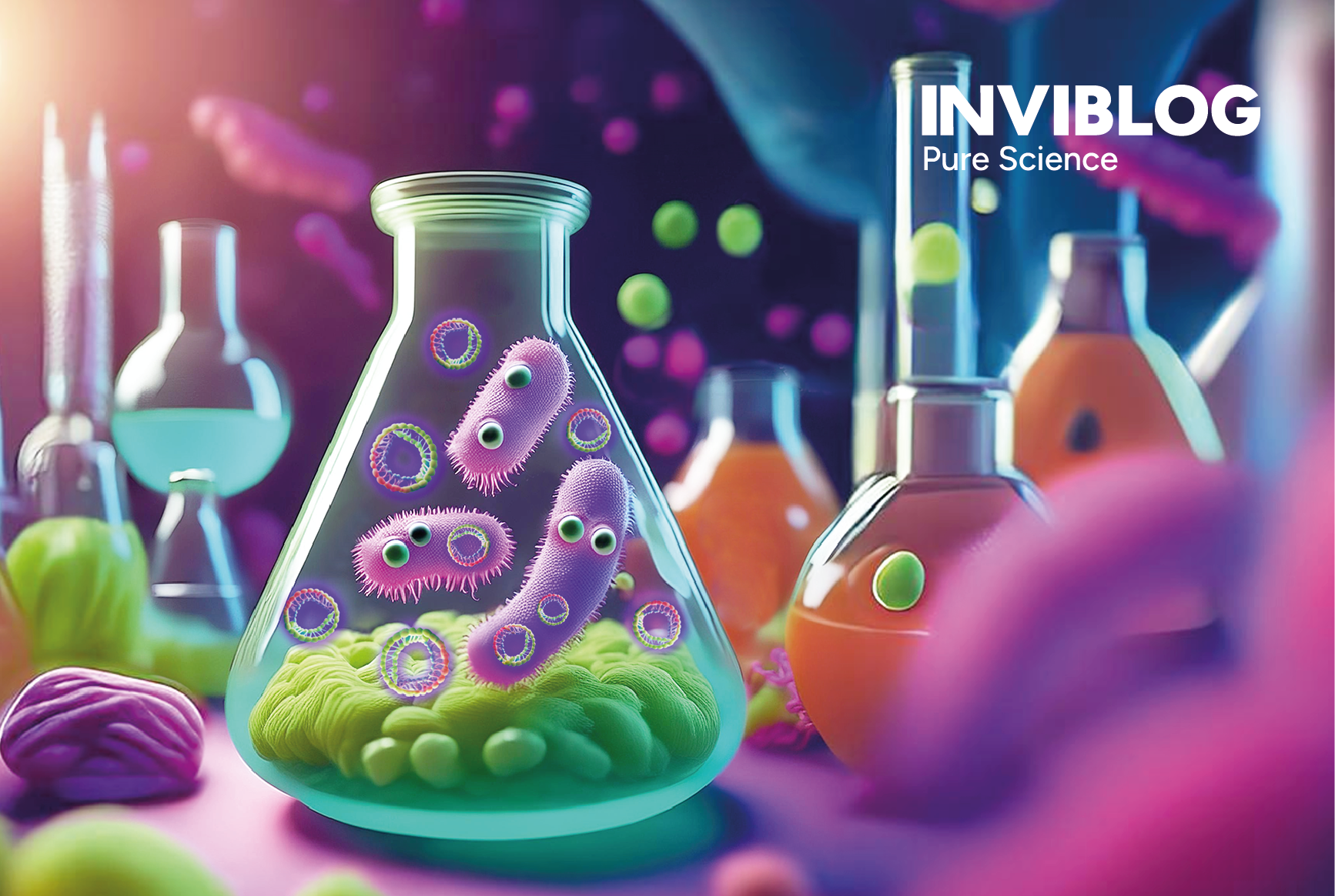Happy Microbiome Day !
Today, we celebrate the tiny organisms that live inside every person’s intestines and play a monumental role in our health and well-being. The key to a healthy, resilient gut is a highly diverse microbiome. Changes in gut microbiota composition have been linked to numerous conditions, including obesity, type 2 diabetes, inflammatory bowel disease, autism, and Parkinsons disease. A healthy microbiome is essential for maintaining a balanced internal environment, protecting against pathogens and modulating metabolic processes.
But how do food, drinks, and medication impact our gut microbiome? Our gut microbiome, composed of trillions of bacteria, fungi, and other microorganisms, plays a crucial role in digesting food, synthesizing vitamins, and maintaining overall health. The foods we consume, the beverages we drink, and even the medications we take can all influence the composition and function of our gut microbiota.
We are what We eat
Our gut microbiome benefits greatly from the fiber we consume. Fruits, vegetables, whole grains, and legumes are rich sources of fiber, which acts as a vital fuel for our gut bacteria. This promotes their growth and multiplication, ultimately enhancing the diversity of our gut microbiome. While concerns may arise regarding the fructose content in fruit, it is essential to note that the source of sugar matters significantly. So, should we steer clear of fruit? For most people’s diets, nutritionists say absolutely not. It is important to understand where the sugar in your diet comes from.
Excessive intake of fructose and high-fructose corn syrup has been linked to the onset of metabolic diseases associated with obesity, making them the most significant diet-related illnesses. Research from the University of Hohenheim in Stuttgart, Germany indicates that short-term high-fructose diets, depending on both the amount and source of the fructose, have distinct impacts on the gut microbiota composition. The study found that a fruit-rich diet promotes a shift towards a healthy, butyrate-producing microbiota community, suggesting that the fiber content in fruits and vegetables plays a crucial role in maintaining a protective microbiotic environment against the negative effects of excessive fructose intake.1
Certain nondigestible carbohydrates, known as prebiotics, are fermented by gut microbiota and have been shown to provide health benefits. Dietary supplementation with purified inulin-type fructans (ITFs) has shown positive effects like improving intestinal permeability, reducing fat mass, increasing satiety-related gut peptides, and enhancing appetite control. However, the impact of ITFs from naturally ITF-rich vegetables on behavior and appetite is less understood. Fermentation of dietary fiber can cause gut discomfort, especially in those with inflammatory bowel syndrome. A study published in the American Journal of Clinical Nutrition examined the effects of natural prebiotics in foods on gut microbiota and gastrointestinal tolerance. ITFs obtained through high consumption of ITF-rich vegetables, like Jerusalem artichokes, leeks, and salsify (also known as oyster plant), can increase dietary fiber intake, improving food-related behavior and beneficially modifying gut microbiota composition and function.2
We are also what we drink
The profile of the gut microbiota is closely associated with cardiovascular disease through mechanisms that include the reported deleterious effects of metabolites such as trimethylamine-N-oxide (TMAO), a compound produced in the digestion of foods such as red meats and dairy products, which have been investigated as diagnostic and therapeutic targets. Moderate red wine consumption has been reported to be cardioprotective, possibly by influencing the gut microbiota.
A clinical trial sponsored by University of Sao Paulo General Hospital in Brazil showed that the modulation of thegut microbiota may contribute to these hypothesized cardiovascular benefits of moderate red wine consumption. The low intra-individual concordance of TMAO poses a challenge when considering its role as a biomarker for cardiovascular risk at the individual level.3
Medicines and gut health
In addition to nutrition, medications such as antibiotics can also influence the gut microbiome. While antibiotics are essential for fighting bacterial infections, they can disrupt the balance of the gut microbiome, resulting in dysbiosis. This imbalance may impact digestion, immunity, and overall well-being. Studies associate antibiotic use with gastrointestinal problems, obesity, allergies, and mental health conditions. Even after completing antibiotic treatment, it may take a while for the microbiome to return to normal. Responsible antibiotic usage and exploring alternative treatments may help mitigate these effects. A recent study in the journal Gut Microbes found that prolonged use of amoxicillin can have a common and reproducible impact on the microbiome, with potential health effects including susceptibility to some types of infections.4
Originally discovered for their antimicrobial properties, statins have been primarily prescribed to lower cholesterol levels and are first-line treatments for coronary artery disease. The use of statins has increased rapidly in recent decades, and they are now one of the most commonly prescribed classes of drugs in Western countries.
A study conducted in Norway showed that statins may have a clinically relevant effect on the gut microbiome and provides a strong rationale for further and larger studies of the influence of statins on the gut microbiome, TMAO and related metabolites in the progression of coronary artery disease, and their influence on treatment response.5
Invitek Diagnostics products for reliable microbiome studies
A major challenge for microbiome studies is maintaining consistent and accurate DNA extraction in the presence of samples with a wide range of bacterial diversity. Therefore, sample stabilization and validated DNA extraction are essential steps in gut microbiome analysis projects. Most errors and biases are caused by problems with sample storage and extraction procedures. In particular, the DNA isolation procedure remains a major source of experimental variability in sequencing analysis and the most time-consuming step in a high-throughput pipeline.
Invitek Diagnostics offers complete solutions for reliable and validated microbiome sample management that have been proven in numerous peer-reviewed publications.
- Microbial & host DNA preserved for 3 months at room temperature in Stool DNA Stabilizer.
- Collection and stabilization of DNA in Stool Collection Tubes
- Extraction of DNA with spin column kit or automated kit using magnetic beads in a 96-well format (KingFisher™ Flex compatible).
- Removal of PCR inhibitors from DNA samples.
In celebrating Microbiome Day, Invitek Diagnostics is proud to provide reliable tools to support researchers around the world in their effort to help us better understand how what we consume effects the microbiome and overall human health.
👉 Stay Ahead in Molecular Diagnostics
Subscribe to Invitek’s blog and get expert insights, research updates, and emerging technology trends — straight to your inbox.
REFERENCES



